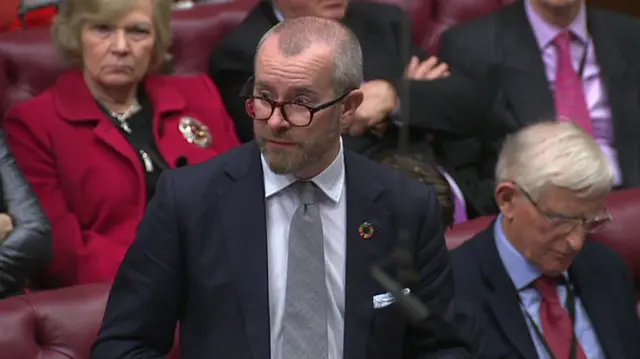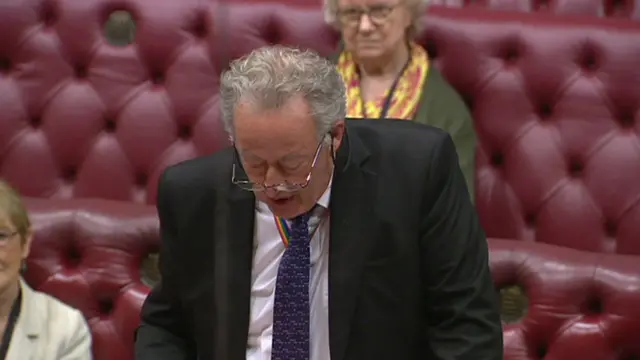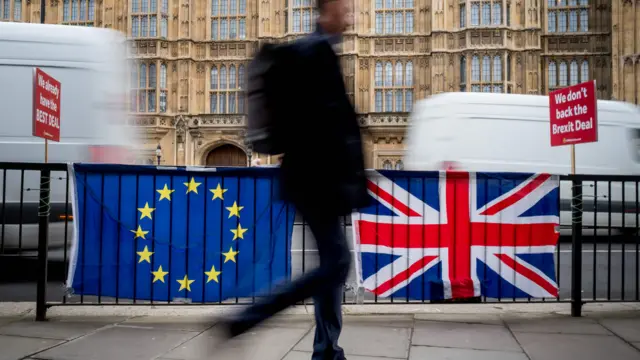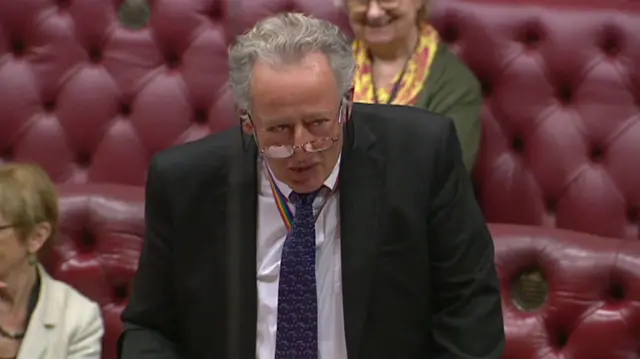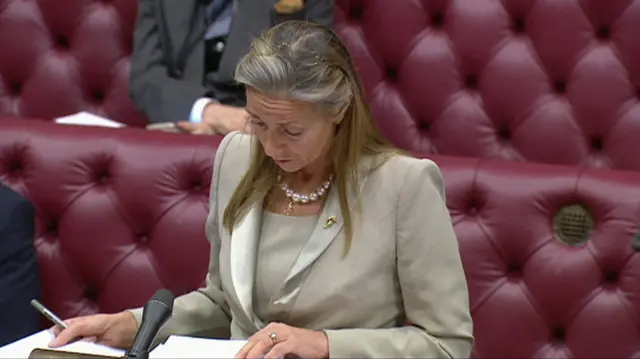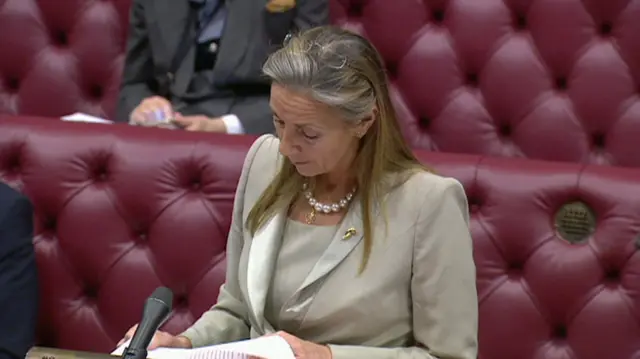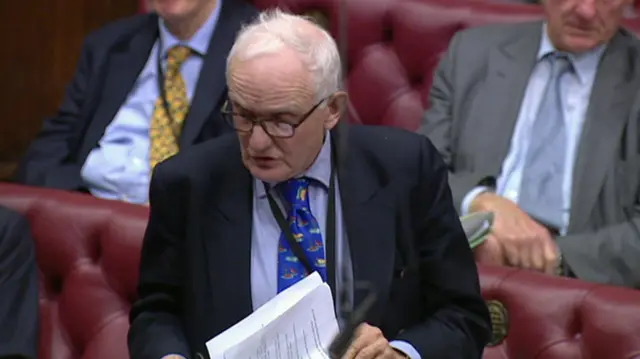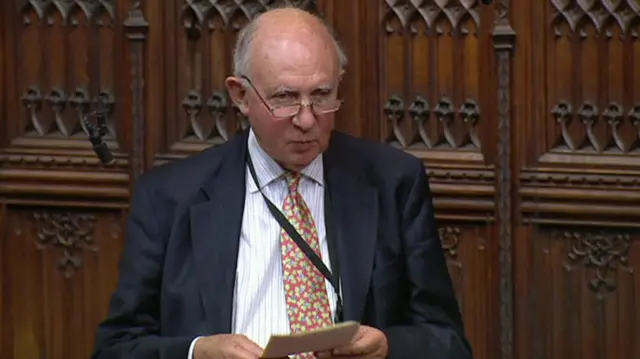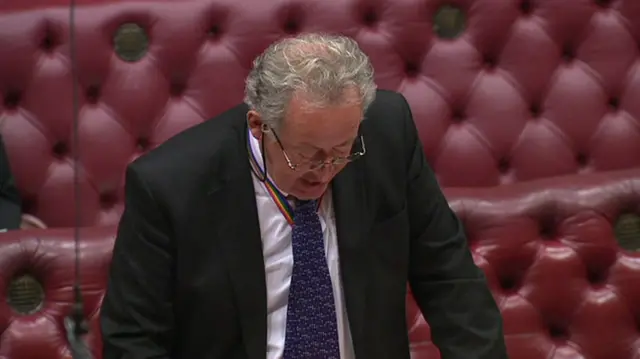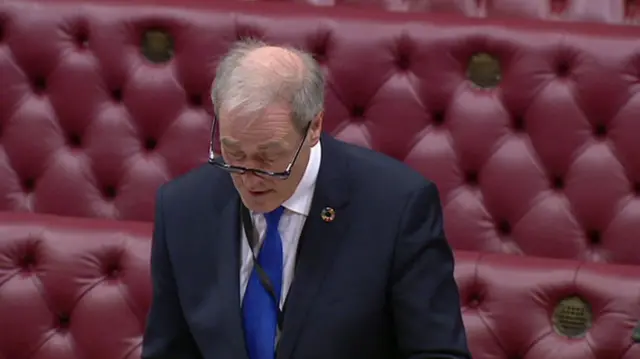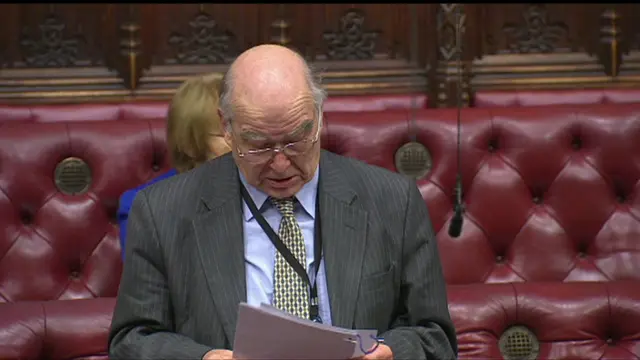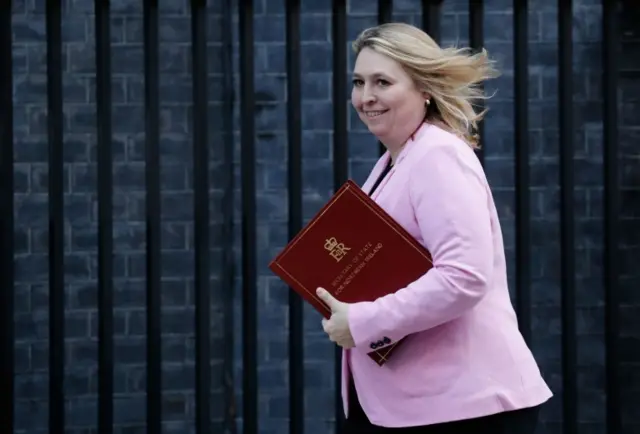'Customs union not provided any benefits for UK' - Tory peerpublished at 20:18 GMT 6 March 2019
Trade Bill
 House of Lords
House of Lords
Parliament
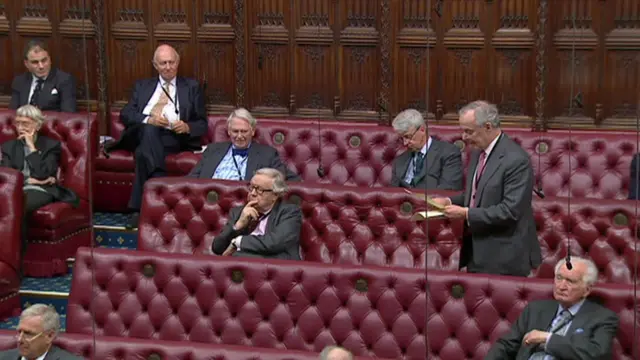 Image source, HoL
Image source, HoLConservative peer Viscount Trenchard says the customs union has not been so beneficial as other peers have suggested.
"The customs union has not provided any benefits for the UK during the 20 years we've been a member," he says.
He says trade deals outside of the EU will offer "more value" to the UK.
"The customs union has not been quite so marvellous for this country as the opposition suggest," he says, calling for the government to stick to their plan of leaving to do trade deals independently with faster growing economies.
